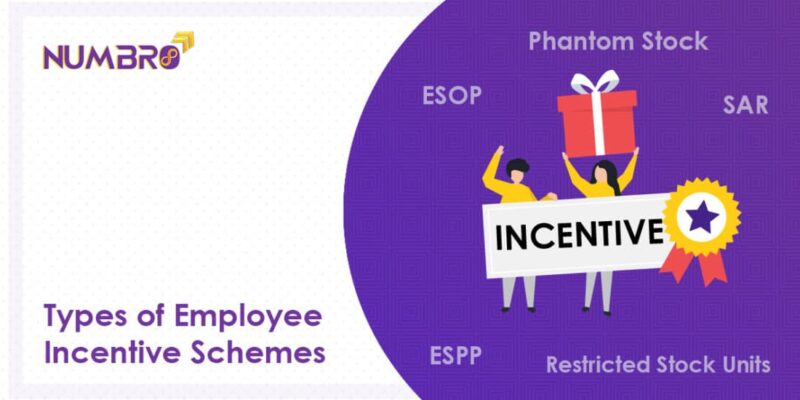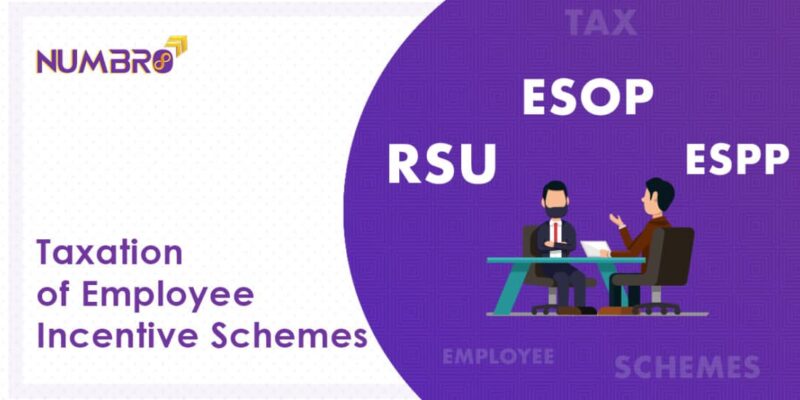Types of Employee Incentive Schemes
We have made an attempt to explain about the types of employee incentive schemes that can be offered to employees. Employees are one of the stakeholders of the company and they being the main resource for any company, the enterprise tries maximum to retain its human resource. A company tries to invest maximum on its human resource to boost the employee’s performance levels and compensate their time devoted towards the company with non-traditional payment methods.
Payment of salaries to employees for using their services is a traditional way of payment and the employees would become redundant in performing, if his services are not recognized by the company properly. Hence one of the non-traditional ways of paying the employees is by way of incentive schemes through issue of shares or cash bonuses.
Employee incentive schemes are issued to the employees on reaching certain targets or conditions fulfilled by them.
Some of the employers may include employee incentive schemes as part of employee’s package or either provide them as an incentive or reward as a token of appreciation for employee’s efforts and contribution towards achieving the goals and profitability of the company.
The employee incentive schemes are issued by both listed and unlisted companies and there are various Acts providing guidelines on the issuance, accounting and taxability of shares issued by the employer.
For this purpose of employee incentive scheme, employee means:
- A permanent employee of a holding or subsidiary or an associate company working in India or outside India.
- A director of the company, except an independent director.
Employee does not include:
- A promoter or a person belonging to promoter group being an employee.
- A director holding more than 10% of outstanding equity shares himself or through relative or any body-corporate, directly or indirectly.
Company can offer employee incentive schemes to its employees in the following ways:
- Employee Stock Option Plan (ESOP)
- Employee Stock Purchase Plan (ESPP)
- Stock Appreciation Rights (SAR) – further divided to (i) cash settled or (ii) equity settled
- Phantom Stock
- Restricted Stock Units
Let us now understand, when and how the above incentive options can be issued to the employees by the employer,

Employee Stock Option Plan (ESOP)
- ESOPs are a right offered to the employee to subscribe to the shares of a company at a pre-determined price.
- They are rights offered but not an obligation.
- ESOPs are issued as an incentive to the employee in the form of shares, instead of remuneration, which guarantees a stake in the company. Hence it directly results in motivation to the employees which results in better performance levels.
- Only the employee is eligible to exercise the option granted to him that is no person other than employee is allowed except in case of death, legal heirs of the employee are eligible to vest the options

* vulputate eu scelerisque sit amet just

* vulputate eu scelerisque sit amet just
Employee Stock Purchase Plan (ESPP):
- It is a scheme offered by the employer where, participating employees can purchase stock of the company at a price lower than the market value.
- Similar to ESOPs, purchase plans are also an option provided but not an obligation.
- The company accumulate funds from the employee’s payroll and makes the purchase on behalf of employees from such fund.
- The company can offer price lower upto a maximum of 15%, than the fair market value.
Stock Appreciation Rights (SAR):
- It is similar to ESOPs, that is when options are vested to the employee, he gets a right to exercise the option. Whereas, unlike in ESOPs, the employee need not pay exercise price.
- In this option, the employee is paid the appreciation of company’s stock price. That is, he is paid the difference between the grant price and fair market value of company’s stock on the date of exercise.
- Such difference is either settled in cash or shares by the company. If paid in cash they are known as cash-settled SARs and if paid in shares they are known as equity-settled SARs. Any fractional shares are also paid in cash.
- In equity-settled SARs, employees have the option to retain the stock or immediately sell-off for cash.
- The SAR shareholders are not eligible to voting rights and they do not receive any dividend too. It is at the employer’s option to decide whether to issue cash-settled or equity-settled SARs.
Phantom Stock:
- Phantom stocks are very similar to Stock Appreciation Rights. But in this option, there is no equity settlement offered to the employees.
- Employer enters into an agreement with selected group of employees and offers phantom shares. There would not be any change in the company’s capital base on issue of such since, this issue is treated as a cash bonus.
- The amount to be paid is increased as the stock price increases and reduces with fall in price of stock.
- They are basically given out in cash in most of the cases but, few established organizations may also pay-out in the form of shares.
- Usually dividends are paid for phantom stock holders but, it is on the judgement of the employer to give or not.
Restricted Stock Units (RSU):
- RSU: It is a commitment offered by the employer to give a specific number of company’s shares upon fulfillment of certain conditions.
- The underlying conditions could be for better performance levels or retaining the employee in the company for a specific period of time.
- The employees need not pay price to attain such stock. The stock attained in assigned fair market value when they vest.
- The settlement is done either in stock or equivalent cash value of the company’s stock.
There are basically very minor differences between above mentioned employee incentive schemes.
Either of the incentive schemes could be chosen by the enterprise to pay out to the employees based on their own judgement. Which option is to be chosen is purely at company’s discretion. Employer has a chance to turn a company’s stakeholder to shareholder in some of the employee incentive schemes mentioned above.




